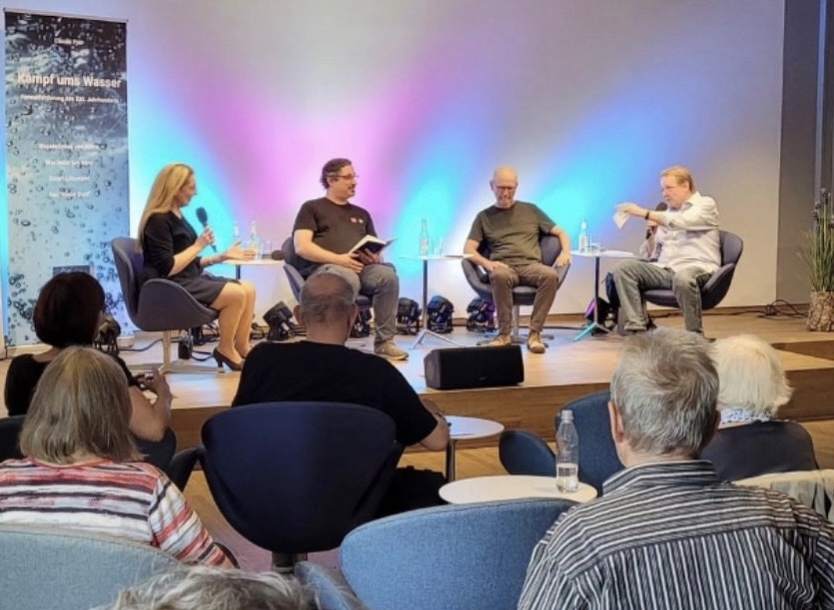Keynote · Journalism · SDG · UN/SDG
Keynote
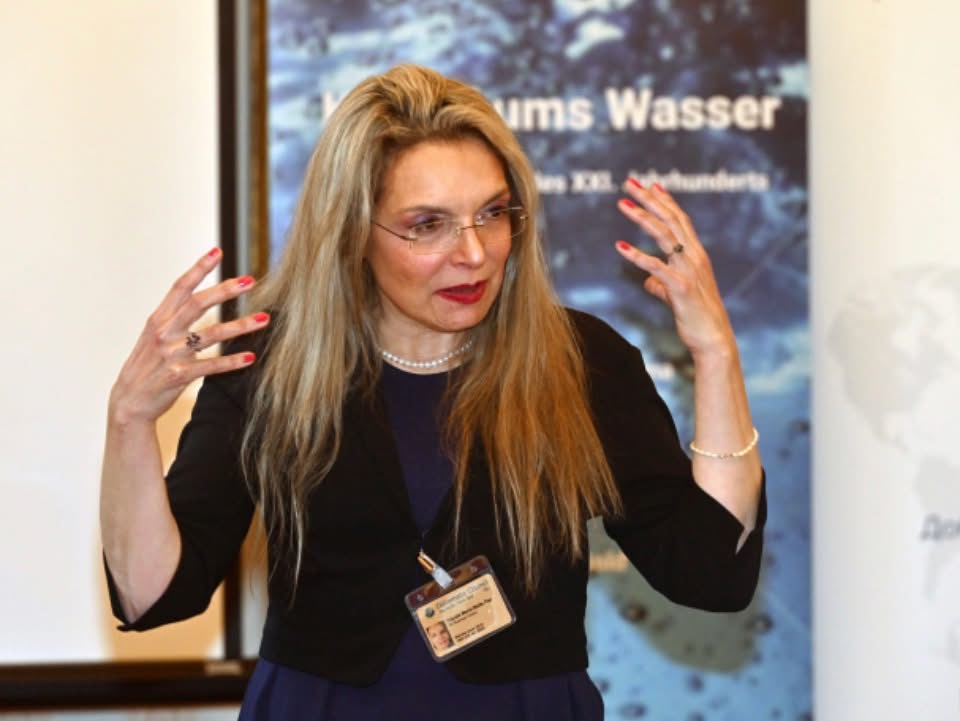
The battle for water is here. Droughts and floods show how changing weather patterns reflect a warming climate, underscoring the urgent need for action. As a journalist with the motto Active journalism — from words to action, I believe it is not enough to merely write about these issues; meaningful engagement is essential.
This keynote is part of my initiative #SDGAction50561, in partnership with my listing on the United Nations SDG Partnerships platform (UN DESA), and is closely linked to my book The Battle for Water.
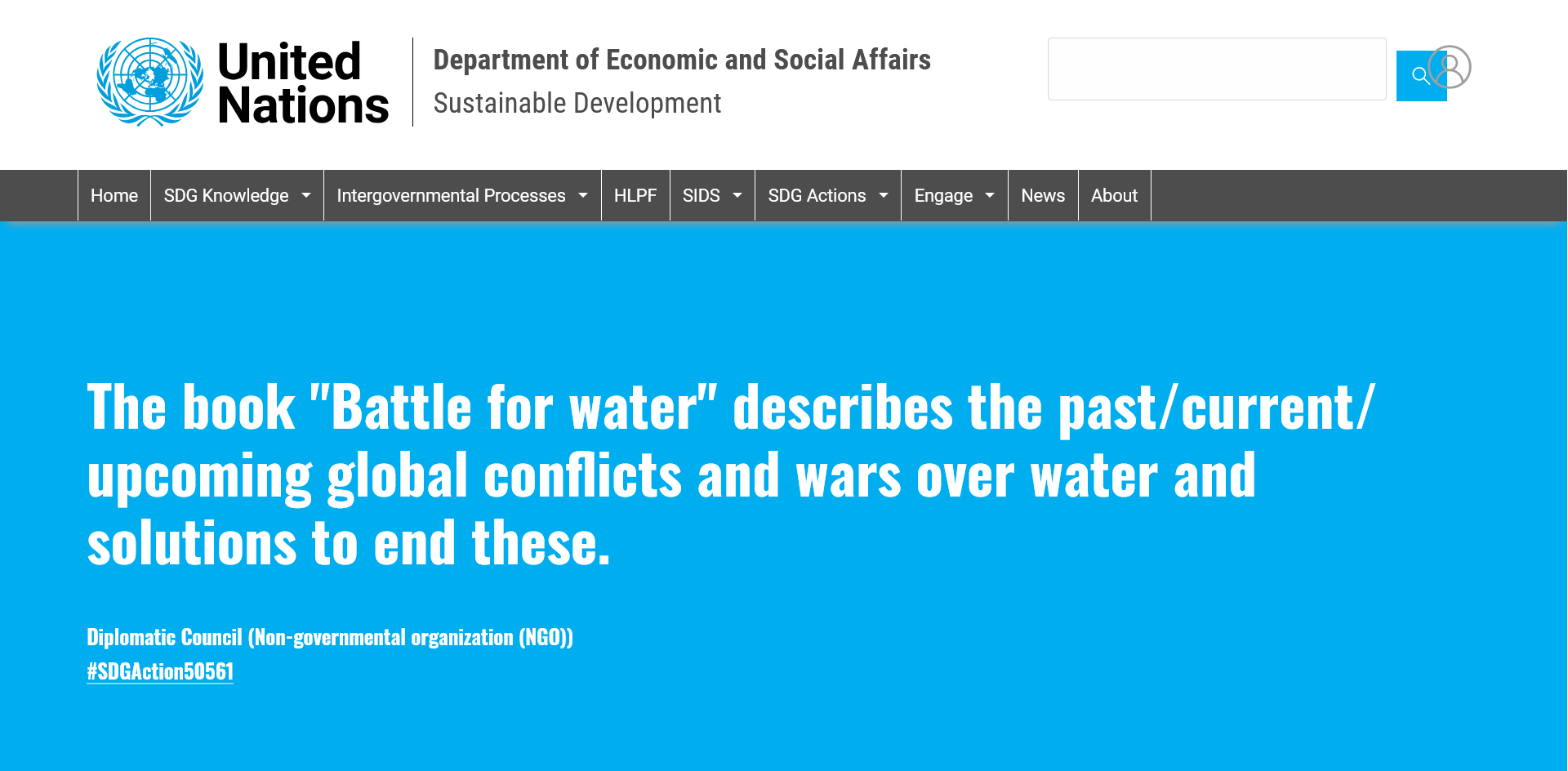 It maps the geopolitics and social reality of water, where policy, governance, and people intersect with climate risk, and where choices shape stability, peace, and cooperation.
It maps the geopolitics and social reality of water, where policy, governance, and people intersect with climate risk, and where choices shape stability, peace, and cooperation.
Grounded in months of international research, the talk identifies global hotspots, follows the geopolitics of rivers and aquifers, and outlines diplomatic, technological, and community pathways to defuse conflict.
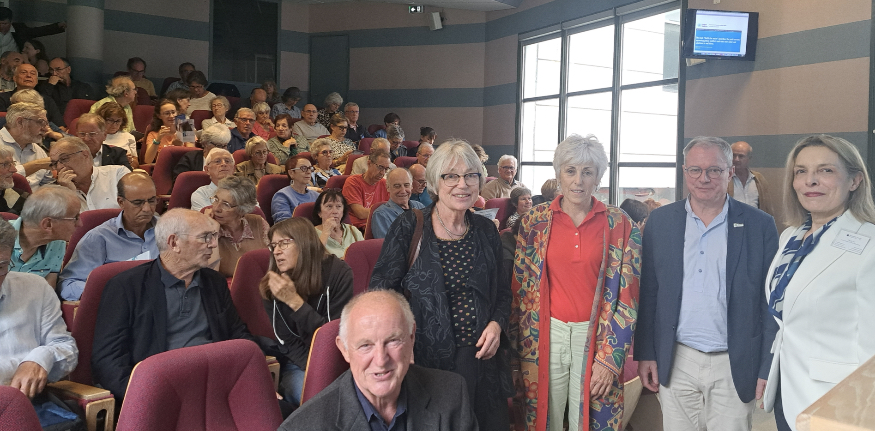
On tour in Germany, France, the Netherlands, and beyond, I distill these findings for policy forums, universities, foundations, corporate leadership, and multilateral summits. The central thesis is simple yet urgent: if the last century was shaped by oil, the next will be defined by how we govern water.
We focus on today’s water crises, their underlying drivers, and proven solutions: river-basin management, fair and data-driven allocation, practical technologies, and community action—from sponge cities to the everyday steps each of us can take.

The global picture is brought down to local realities, offering clear actions for institutions, cities, and individuals alike. Facts and fieldwork meet storytelling and participation in an interactive, evidence-based keynote tailored to your audience and region.
My next book, The Battle for the Oceans, continues in this spiritRequest dates and a one-page outline to tailor the keynote to your context.
Presenter
I moderate policy forums, European election debates, and resource-security panels with evidence-based facilitation, incisive questions, and decision-grade synthesis. Sessions are structured, fair, and lively so complex topics become clear and actionable. I work in English, German, and French.
Think of moderation as applied journalism: focus, empathy, and curiosity that link facts to choices. I keep the rhythm tight, give every voice space, and turn discussion into outcomes, clarity, commitments, and next steps that last beyond the event.
Themes and formats span water and resource security (basin management, fair allocation, “sponge cities,” data and technology, community solutions), ocean policy, climate policy, and European democracy. Panels, debates, fireside talks, roundtables, town halls, and live broadcasts, on site or online—are designed with a custom agenda and Q&A plan for your audience.
Speaking and Dialogue
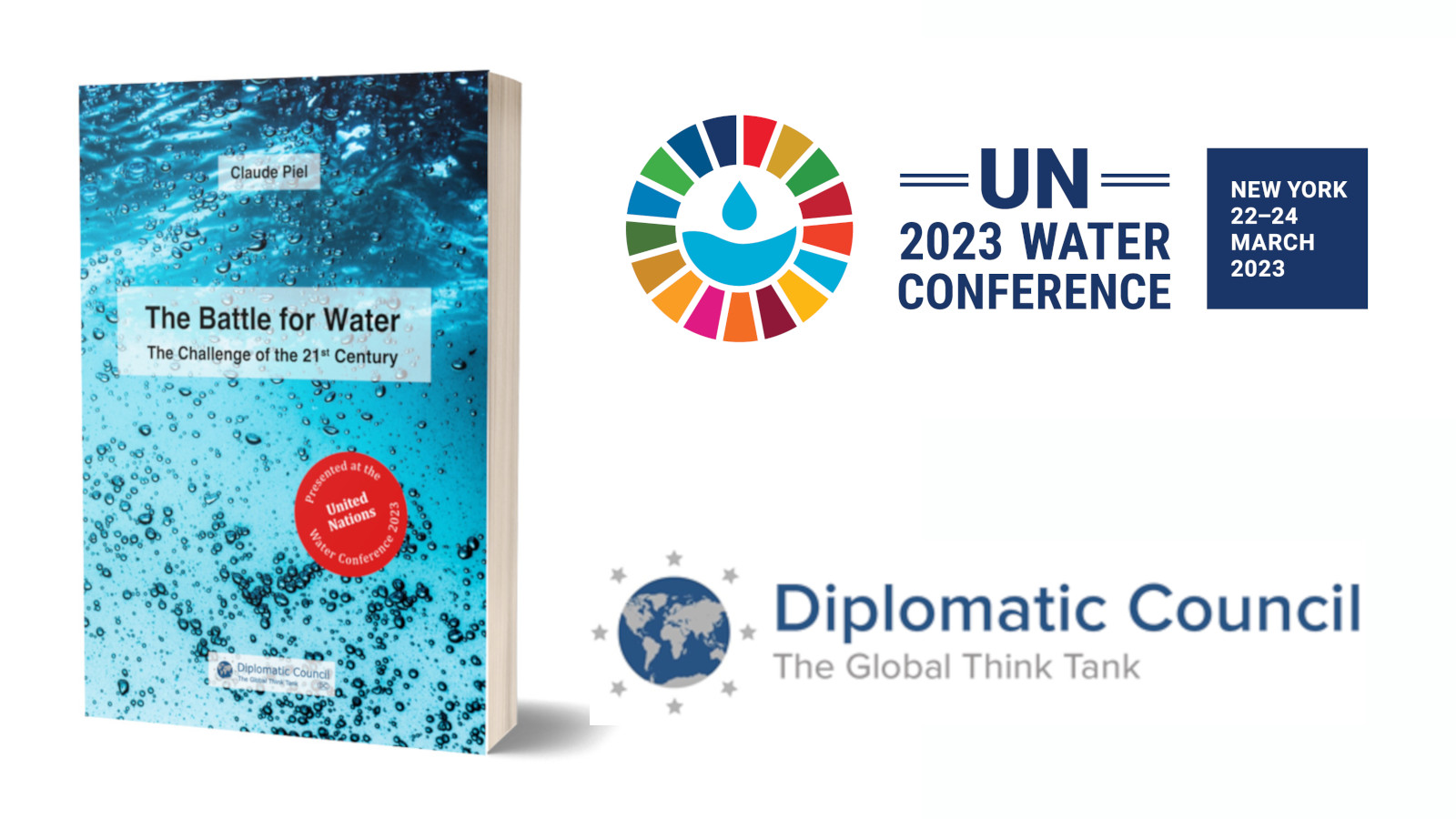
I presented The Battle for Water at the United Nations 2023 Water Conference at UN Headquarters in New York. The event took place on World Water Day (22 March 2023) as an official side session of the Diplomatic Council, during the first UN Water Conference since 1977! The presentation served as an entry point for a wider conversation — not as a film screening, but as an invitation to dialogue.
